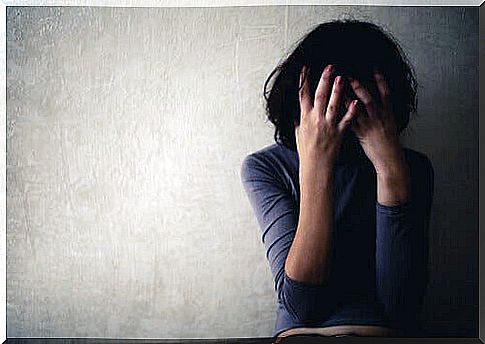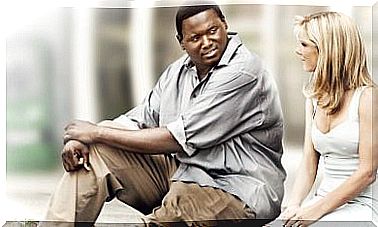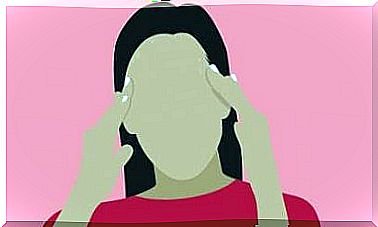Bipolar Disorder And Affective Relationships

Bipolar disorder is a complex-definition mood disorder. Its most salient feature is that people who suffer from it suffer rapid and drastic swings in their mood in a sustained manner. Some fluctuations that prevent them from feeling really good -even if they go through states of euphoria- and that considerably affect their ability to adapt.
These changes in mood bring, among other complications, problems in affective relationships. We refer to the fact that emotional instability causes affective relationships to suffer, especially when we speak of couple relationships; because it is difficult to have a relationship with someone who experiences such drastic changes in their mood.
Maintaining an emotional relationship requires knowledge of the other, understanding, flexibility, but also a certain stability (being, in some way, predictable). Relating to someone who lives episodes of mania and / or depressive episodes that do not have to do exactly with the experiences of their life is a stone in the way of relationships. Therefore, we will explain what bipolar disorder is and how it conditions the social circle and the satisfaction of the person who suffers from it.

What is bipolar disorder?
People mistakenly refer to changes in their opinions, thoughts, or feelings as traits of bipolarity. That is, it is believed that one day being happy and the other sad is “being bipolar”; This is not the case: to have a diagnosis of bipolar disorder, a series of diagnostic criteria must be met. Statistics tell us that only 0.5 – 1.6% of the general population meets them (Ministry of Health, Social Services and Equality, 2012).
At a general level, having bipolar disorder requires a very high mood phase, impulsive behaviors that involve large expenses, radical plans or changes, and little need to sleep for at least 2 weeks. With which, being very happy or being sad one day and then not is not having bipolar disorder; we can have mood changes or disparate personality characteristics without it being a mental disorder.
What do we know about bipolar disorder and affective relationships?
Relationships with a person who has bipolar disorder are complicated, although when the disorder is controlled and the person who has it is stable, it is possible to have a 100% normalized life. In this sense, people with bipolar disorder fall in love like any other person without problems, unless they are in a phase of mania in which the mood is so euphoric and positive that it confuses feelings.
Therefore, at a general level, falling in love and the beginning of an affective relationship are the same as in other people, with caution not to initiate romantic relationships in phases of euphoric mood.
Likewise, when we think about bipolar disorder and affective relationships, instability in feelings comes to mind. In other words, if we think of having a partner with bipolar disorder, it is very likely that we are thinking of a chaotic and changing type of relationship.
Nothing could be further from reality: today, with psychiatric medication to stabilize the mood, psychological therapy and follow-up, the person is able to maintain a stable relationship. The relationship will have ups and downs, and perhaps deeper and more severe than those of another couple. The important thing will be the management that the couple and the environment make of them.
Bipolar disorder and changes of opinion: myth or reality
The term bipolar is part of our everyday language. Jokingly or seriously, many people wear this label when they are far from suffering from a disorder.
Also, bipolar disorder is not necessarily related to changes in opinion. Thus, when we think about bipolar disorder and affective relationships, we do not have to imagine a relationship in which ideas, attitudes, motivations and objectives are constantly changed.
However, it is very important to consider that the energy that a person with bipolar disorder has can change from one week to the next, significantly. The level of energy or activation can be easily modified and this can affect the plans that a partner has, the desire to do activities or trips, for example. Being in an affective relationship with a person with bipolar disorder implies adjusting to their mental and physical activation changes, but if this is managed properly it does not represent an insurmountable obstacle.

What can you do if you are in a relationship with someone with bipolar disorder?
Although a if it is controlled does not bring great problems, it is necessary to know how to properly handle bipolar disorder and affective relationships. There are certain tips / aspects to keep in mind. First of all, being in a relationship with someone who has bipolar disorder involves knowing this mental illness very well. Both parties in the relationship need to know what happens, how it manifests itself, and what to do during a crisis. For example, the partner of someone with bipolar disorder needs to know the signs that can anticipate an episode of mania or depression.
In addition, daily stress levels have to be taken care of with special care, since they are a trigger for episodes in which the mood becomes extreme. When considering an affective relationship, couples have to find a balance in the distribution of tasks and responsibilities, so that there is no overload on the person suffering from the disorder. Because the demands and the sustained feeling of not being on time increase the chances of a setback or relapse.
Therefore, people with bipolar disorder have to follow a very controlled routine, with stable sleep and meal schedules, avoiding sudden changes (Becoña and Lorenzo, 2001). They can party and stay up all night, get up early, eat at different times on weekends; But, if they start to feel “weird”, they need understanding and empathy because they are not to blame for the suffering they feel or cause.
Thus, having a partner with bipolar disorder implies a great effort of adaptation; On the other hand, the fact that the couple is involved in psychiatric and psychological follow-up also improves the situation. The more involved the couple is in the drift of the disorder, the less the relationship will suffer. Remember that every day progress is made in the control of mental illnesses and that, in principle, bipolar disorder does not have to be an insurmountable obstacle to a relationship.









